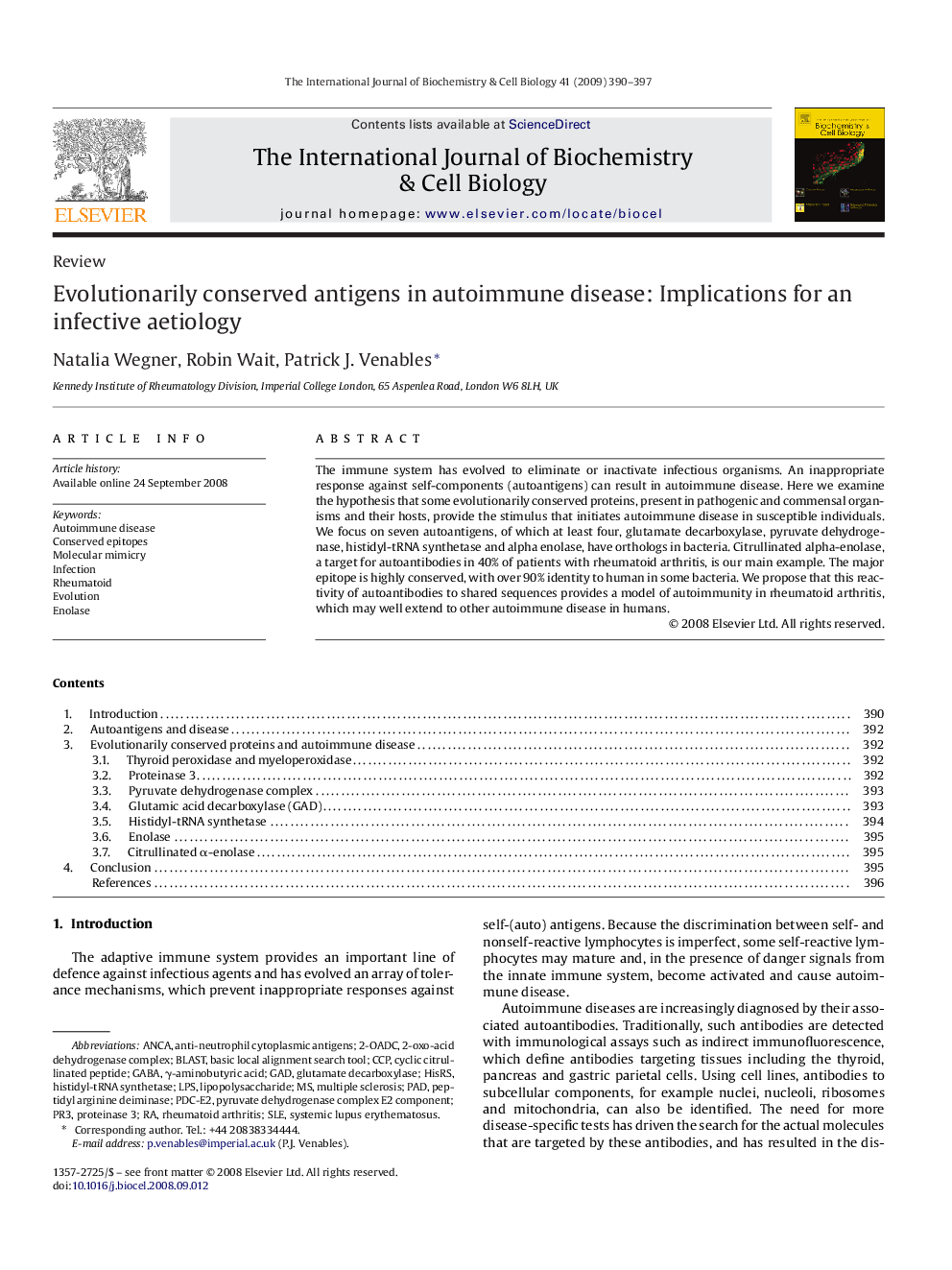| کد مقاله | کد نشریه | سال انتشار | مقاله انگلیسی | نسخه تمام متن |
|---|---|---|---|---|
| 1984284 | 1539956 | 2009 | 8 صفحه PDF | دانلود رایگان |

The immune system has evolved to eliminate or inactivate infectious organisms. An inappropriate response against self-components (autoantigens) can result in autoimmune disease. Here we examine the hypothesis that some evolutionarily conserved proteins, present in pathogenic and commensal organisms and their hosts, provide the stimulus that initiates autoimmune disease in susceptible individuals. We focus on seven autoantigens, of which at least four, glutamate decarboxylase, pyruvate dehydrogenase, histidyl-tRNA synthetase and alpha enolase, have orthologs in bacteria. Citrullinated alpha-enolase, a target for autoantibodies in 40% of patients with rheumatoid arthritis, is our main example. The major epitope is highly conserved, with over 90% identity to human in some bacteria. We propose that this reactivity of autoantibodies to shared sequences provides a model of autoimmunity in rheumatoid arthritis, which may well extend to other autoimmune disease in humans.
Journal: The International Journal of Biochemistry & Cell Biology - Volume 41, Issue 2, February 2009, Pages 390–397